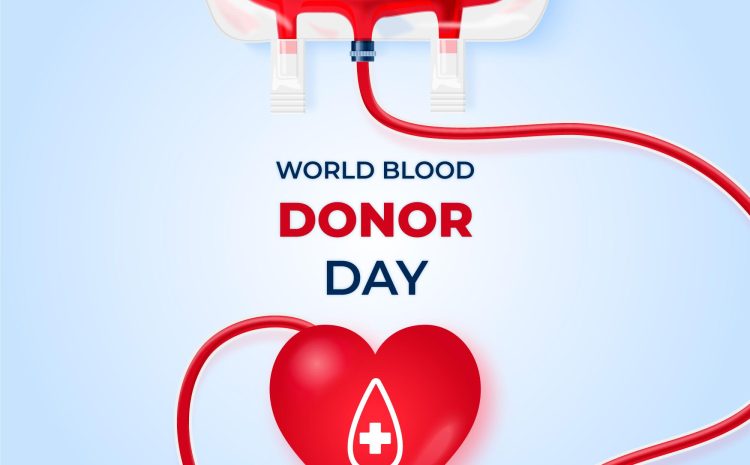World Blood Donor Day

World Blood Donor Day is on June 14. The theme for World Blood Donor Day 2023 is Give blood, give plasma, share life, share often.
Every single blood or plasma donation is lifesaving. Regular voluntary blood donation persons deposit a safe, secure and sustainable blood supply in the blood bank for human availability. Blood donation is voluntary and unpaid. Access to blood supply is vital for all patients especially those requiring life-long and regular transfusions for conditions such as sickle-cell anaemia and thalassaemia, Haemophilia and immune deficiencies.
Today in the developed world, most blood donors are unpaid volunteers who donate blood for a community supply. In some countries, established supplies are limited and donors usually give blood when family or friends need a transfusion (directed donation).
There are 4 main blood groups – A, B, AB and O which are genetically inherited from our parents. Our blood also has what is known as an Rh factor, that either contains a certain protein Rh (+ve) or it doesn’t (-ve).
Who is Eligible to Donate Blood?
Any healthy adult, both male and female, can donate blood. Good health of the donor must be fully ensured. The universally accepted criteria for donor selection are:
- Age between 18 and 60 years
- Haemoglobin – not less than 12.5 g/Dl
- Pulse – between 50 and 100/minute with no irregularities
- Blood Pressure -Systolic 100-180 mm Hg and Diastolic 50 – 100 mm Hg
- Temperature – Normal (oral temperature not exceeding 37.50C)
- Body weight – not less than 45 Kg
- Health conditions: The donor should be in a healthy state of mind and body.
You can’t donate blood if you:
- have had most types of cancer.
- have some heart conditions.
- have received blood, platelets, plasma or any other blood products after 1 January
1980. - have tested positive for HIV.
- have had an organ transplant.
- are a hepatitis B or C carrier.
How many times a person can donate blood in a year?
Men can donate safely once in every three months while women can donate every four months.
Where can you donate blood in Mumbai?
Blood can be donated in any hospital that has a Blood Bank.
What is the Bombay Blood Group?
The Bombay blood group is a rare blood group. Persons with this group lack H antigen on their
red cell membrane and have anti-H in the serum. H antigen deficiency is known as the Bombay phenotype (h/h, also known as Oh) and is found in 1 of 10,000 individuals in India and 1 in a million people in Europe.
It was first discovered in Bombay and that is why called so. Since Bombay blood group do not possess the A or B antigens, it is usually comprehended as the ‘O’ blood type. It is only after a specific test for H Antigen in the blood is performed that a distinction between Bombay blood group and ‘O’ blood
group can be obtained.
Give blood, give plasma, share life, share often.

By Dr. Sandhya Kamath
Dr. Sandhya Kamath is presently a Trustee of GSBS Medical Trust.
